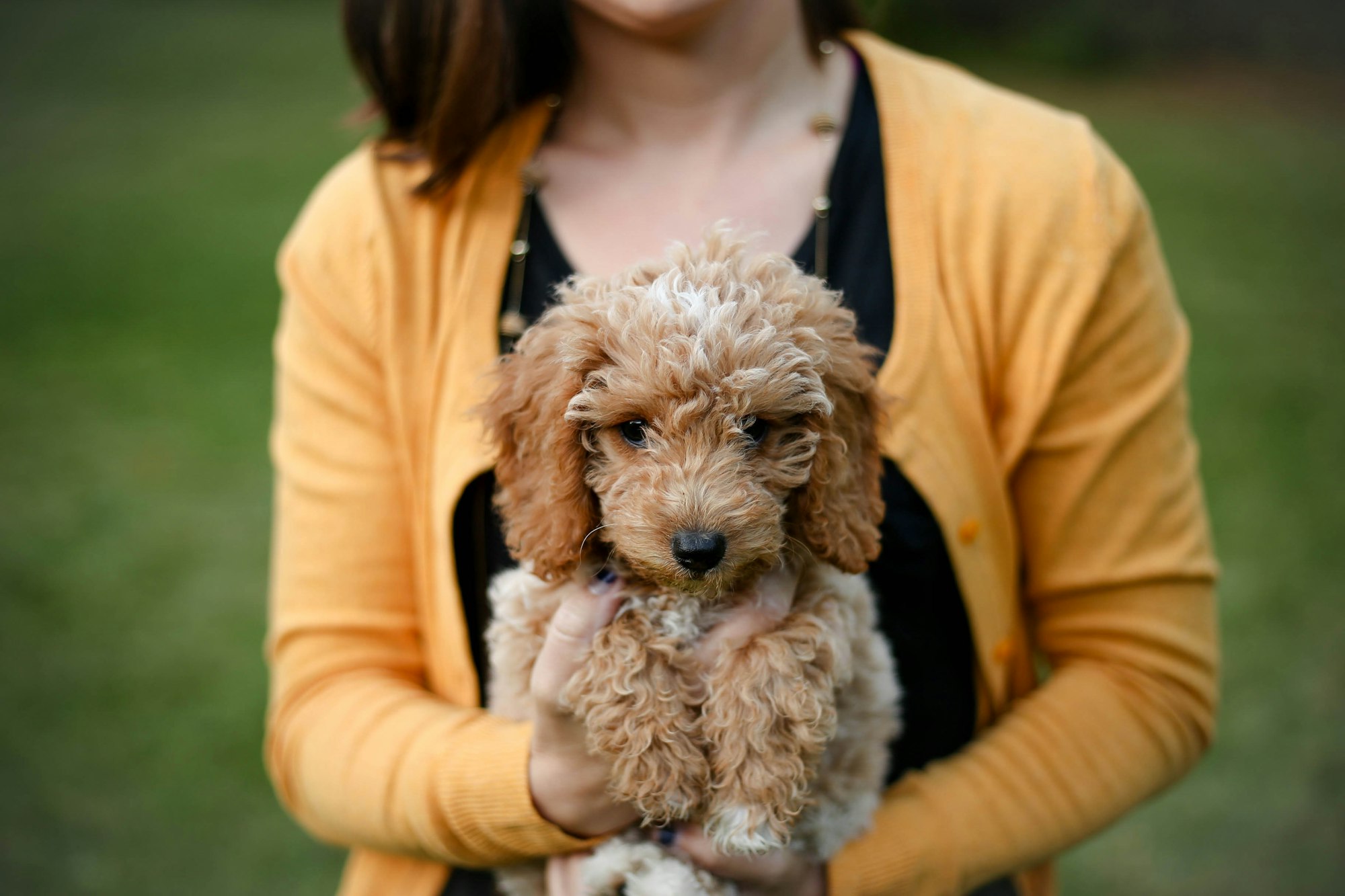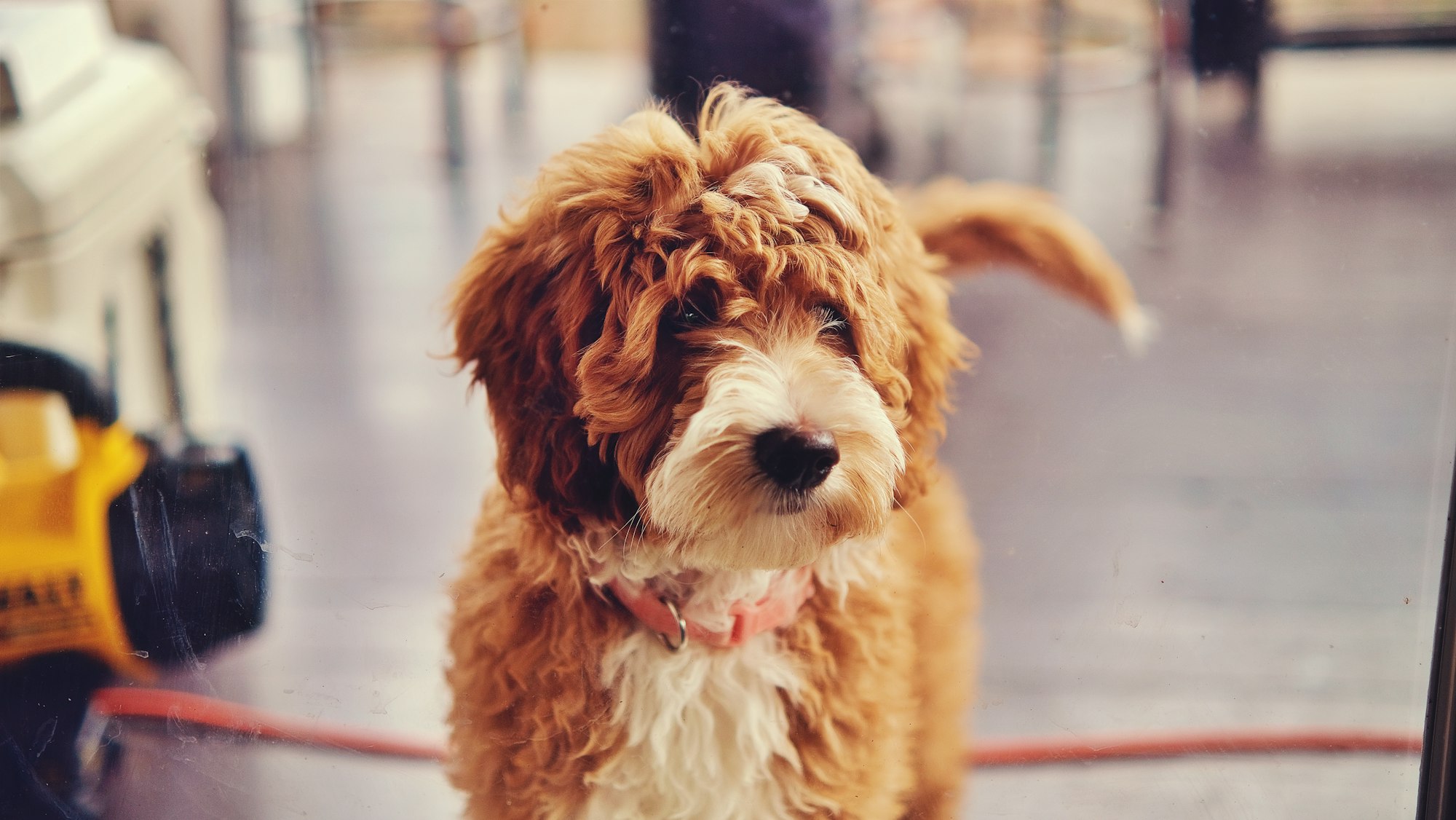Goldendoodles, the delightful crossbreed between a Golden Retriever and a Poodle, have become increasingly popular as cherished family pets. As more people consider adding these lovable companions to their homes, understanding the factors influencing a Goldendoodle's price becomes crucial. In this article, we will explore seven key elements that contribute to the varying costs associated with these adorable furry friends.

Goldendoodles, known for their friendly disposition and hypoallergenic qualities, have captured the hearts of pet lovers worldwide. As the demand for these crossbreeds rises, so does the diversity in pricing. In this guide, we'll delve into the intricacies of what determines the price tag attached to a Goldendoodle.
Factor 1: Breeding Quality and Generational Differences
Breeding Quality
Breeding quality is a paramount factor influencing the price of a Goldendoodle. Reputable breeders dedicate time and effort to ensure their breeding pairs exhibit desirable traits, encompassing both physical attributes and temperament. The quality of the breeding process directly correlates with the overall health and behavior of the Goldendoodle puppies.
Impact on Goldendoodle's Health: Well-established breeders conduct thorough health screenings for potential breeding pairs. This proactive approach helps identify and eliminate genetic issues, reducing the likelihood of health complications in the offspring. The assurance of good health not only adds value to the puppy but also contributes to the peace of mind of the prospective owner.
Influence on Temperament: Beyond physical attributes, breeding quality significantly shapes the temperament of the Goldendoodle. Responsible breeders select breeding pairs based on compatible dispositions, aiming to produce puppies with friendly and trainable personalities. This intentional breeding process results in Goldendoodles that seamlessly integrate into family life, making them highly sought after as companions.
Certification and Accreditation: Reputable breeders often hold certifications and memberships in relevant breeding associations. These credentials serve as indicators of their commitment to ethical breeding practices and adherence to industry standards. Prospective Goldendoodle owners should prioritize breeders with recognized certifications, ensuring they are purchasing a puppy from a reliable source.
Generational Differences
Understanding the generational differences among Goldendoodles is crucial for prospective buyers seeking a furry addition to their family. The classification into F1, F1B, and multigenerational categories provides insights into the lineage and characteristics of the puppies.
F1 Goldendoodles: F1 Goldendoodles are first-generation crosses between a purebred Golden Retriever and a purebred Poodle. These puppies exhibit a diverse range of traits inherited from their parent breeds. While they are often hypoallergenic and possess friendly temperaments, there is more variability in their coat types and shedding tendencies.
F1B Goldendoodles: F1B Goldendoodles result from crossing an F1 Goldendoodle with a purebred Poodle. This generation is known for its increased hypoallergenic qualities, as the Poodle genetics are more pronounced. F1B Goldendoodles often have curlier coats and are a popular choice for individuals with allergies.
Multigenerational Goldendoodles: Multigenerational Goldendoodles are bred from other Goldendoodles rather than purebred parents. These generations aim for consistency in coat types and characteristics. While they may be more predictable in terms of appearance and temperament, they can also be pricier due to the intentional breeding process.
Pricing Considerations: Generational differences play a significant role in determining the price of a Goldendoodle. F1B and multigenerational puppies, with their enhanced hypoallergenic qualities and more predictable traits, often come with higher price tags. Buyers should consider their preferences and lifestyle when choosing a specific generation that aligns with their expectations.
In summary, both breeding quality and generational differences contribute significantly to the overall value and pricing of Goldendoodles. Prospective buyers should prioritize responsible breeders who emphasize health, temperament, and ethical practices. Understanding the nuances of generational classifications allows buyers to make informed decisions based on their preferences and requirements.

Factor 2: Color and Coat Type
The color and coat type of a Goldendoodle are not merely aesthetic considerations; they play a pivotal role in determining the price of these lovable companions. Prospective owners often have preferences for specific colors or coat patterns, and breeders take these preferences into account when pricing their puppies.
Influence of Coat Color on Pricing
Goldendoodles come in a diverse array of coat colors, including golden, cream, apricot, chocolate, and black, among others. While some colors are more common, others are considered rare and may command a higher price. Unique or unusual coat colors often attract buyers seeking a distinct and eye-catching companion, contributing to pricing variations.
Special Considerations for Rare Colors
Certain coat colors, such as parti-color or merle, are considered rare and may be associated with a higher price point. Breeders carefully select for these unique colorations, and the rarity adds an element of exclusivity to the Goldendoodle. Prospective buyers interested in these distinctive colors should be prepared for potential increases in cost.
Factor 3: Size Matters
When it comes to Goldendoodles, size matters not only in terms of their adorable factor but also in determining their price. Goldendoodles are available in three main size categories: miniature, medium, and standard. The size of the Goldendoodle is a key factor that influences both demand and pricing.
Pricing Variations Based on Size
Smaller-sized Goldendoodles, such as miniatures, are often in higher demand due to their suitability for apartment living and their perceived manageability. As a result, these smaller sizes may be priced higher than their larger counterparts. Buyers seeking a specific size should be aware of these variations and consider how size aligns with their living arrangements and preferences.
Demand for Specific Sizes
The popularity of certain sizes can impact pricing. If there is a surge in demand for miniature Goldendoodles, breeders may adjust prices accordingly. Conversely, standard-sized Goldendoodles may be more readily available, potentially leading to lower prices. Understanding the demand for specific sizes can help buyers anticipate pricing trends in the market.
Size Considerations for Owners
Prospective Goldendoodle owners should carefully consider the size that best fits their lifestyle. While miniatures are portable and well-suited for smaller spaces, standard-sized Goldendoodles may be preferred by those with more room and an active lifestyle. Size considerations should align with the owner's ability to meet the needs of their furry friend adequately.
In conclusion, the color and coat type, as well as the size of a Goldendoodle, contribute significantly to its pricing. Buyers with specific preferences for coat colors or sizes should be prepared for potential variations in cost. Understanding these factors allows prospective owners to make informed decisions based on their preferences and lifestyle, ensuring a harmonious match between the Goldendoodle and its new family.
Factor 4: Bloodline and Pedigree
The bloodline and pedigree of a Goldendoodle are crucial considerations that extend beyond superficial traits. These factors delve into the genetic history of the dog, influencing not only its appearance but also its health and behavior. Buyers seeking a Goldendoodle with a well-documented lineage and reputable breeding should pay close attention to bloodline and pedigree considerations.
Significance of Pedigree in Determining Price
Goldendoodles with traceable and desirable pedigrees often come with a higher price tag. Pedigree provides insight into the ancestry of the dog, including the purity of its lineage and the presence of sought-after traits. Responsible breeders invest in maintaining and improving bloodlines, and this commitment to quality is reflected in the pricing of the puppies.
Reputable Breeders and Impact on Cost
Choosing a reputable breeder with a focus on maintaining high-quality bloodlines is essential. Breeders who prioritize ethical breeding practices, health clearances, and positive traits in their breeding pairs contribute to the overall value of the Goldendoodle. While such breeders may charge higher prices, buyers can be confident in the health and temperament of their new furry family member.
Factor 5: Geographical Location
The geographical location of a buyer is a significant factor influencing the price of Goldendoodles. Demand, availability, and regional preferences vary from one location to another, contributing to pricing differences across different areas.
Regional Pricing Differences
The demand for Goldendoodles can vary widely by region. In areas where these crossbreeds are highly sought after, prices may be higher due to increased demand. Conversely, in regions where Goldendoodles are less popular, prices may be more competitive. Prospective buyers should be aware of regional pricing trends to make informed decisions.
Availability and Demand in Specific Areas
Geographical location also affects the availability of Goldendoodles. In regions where reputable breeders are scarce, the available puppies may command higher prices. Understanding the local market dynamics allows buyers to assess whether obtaining a Goldendoodle locally or considering breeders from other regions is more cost-effective.
Transportation Costs
For buyers considering obtaining a Goldendoodle from a breeder located in a different region, transportation costs should be factored into the overall budget. Transporting a puppy over long distances may incur additional expenses, impacting the total cost of ownership.
Factor 6: Training and Socialization
The level of training and socialization a Goldendoodle receives is a key factor influencing its price. Buyers seeking a well-behaved and socially adept companion often find that trained Goldendoodles come with a higher price tag. Training and socialization contribute not only to the dog's behavior but also to the overall experience of pet ownership.
Trained Goldendoodles vs. Untrained
Trained Goldendoodles have typically undergone basic obedience training, making them more adaptable to living in a domestic environment. These dogs may have learned commands, leash manners, and proper behavior, enhancing their integration into the family. The investment in training is reflected in the price, as it saves the new owner time and effort in training from scratch.
Impact on Price
The cost of training, whether conducted by the breeder or a professional trainer, is factored into the overall price of the Goldendoodle. The more advanced the training, the higher the price may be. Buyers should assess their own preferences and abilities, considering whether a trained or untrained Goldendoodle aligns better with their lifestyle and willingness to invest time in additional training.
Factor 7: Health Certifications
Health certifications play a crucial role in determining the overall well-being of a Goldendoodle. Responsible breeders prioritize the health of their breeding pairs and undergo thorough health clearances to ensure the genetic health of the puppies. Buyers seeking assurance in the health and longevity of their new furry family member should pay close attention to the health certifications provided by the breeder.

The Role of Health Clearances in Pricing
Goldendoodles with documented health clearances from both parents are likely to be priced higher. These clearances indicate that the breeding pair has been screened for common genetic issues, reducing the risk of hereditary health problems in the offspring. The investment in health certifications reflects the breeder's commitment to producing healthy and robust Goldendoodles.
Assurance of a Healthy and Well-Bred Goldendoodle
Health certifications provide buyers with peace of mind, knowing that their Goldendoodle is less likely to develop genetic conditions that could result in costly veterinary bills. The assurance of a healthy and well-bred puppy justifies the higher price associated with Goldendoodles from breeders who prioritize health certifications.
Conclusion
In conclusion, the price of a Goldendoodle is influenced by a combination of breeding quality, generational differences, coat characteristics, size, bloodline, geographical location, training, health certifications, breeder reputation, market trends, and additional costs. Prospective owners should approach the decision to bring a Goldendoodle into their homes with a well-informed understanding of these factors to make the best choice for their unique circumstances.
FAQs
- Q1: Why are Goldendoodles so popular?
- Goldendoodles are popular for their friendly nature, hypoallergenic qualities, and adorable appearance, making them ideal family pets.
- Q2: Are there rescue Goldendoodles available for adoption?
- Yes, rescue organizations sometimes have Goldendoodles available for adoption. Check local shelters and rescue groups for potential opportunities.
- Q3: How can I find a reputable Goldendoodle breeder?
- Research breeders online, read reviews, and ask for recommendations from local veterinary clinics or pet communities to find reputable breeders.
- Q4: Are there any discounts or promotions for purchasing a Goldendoodle?
- Some breeders may offer promotions or discounts, but it's essential to prioritize the reputation and ethical practices of the breeder over discounts.
- Q5: What should I look for in a health guarantee for a Goldendoodle?
- A comprehensive health guarantee should cover genetic conditions, provide details on veterinary care, and offer clear instructions on what to do in case of health issues.

